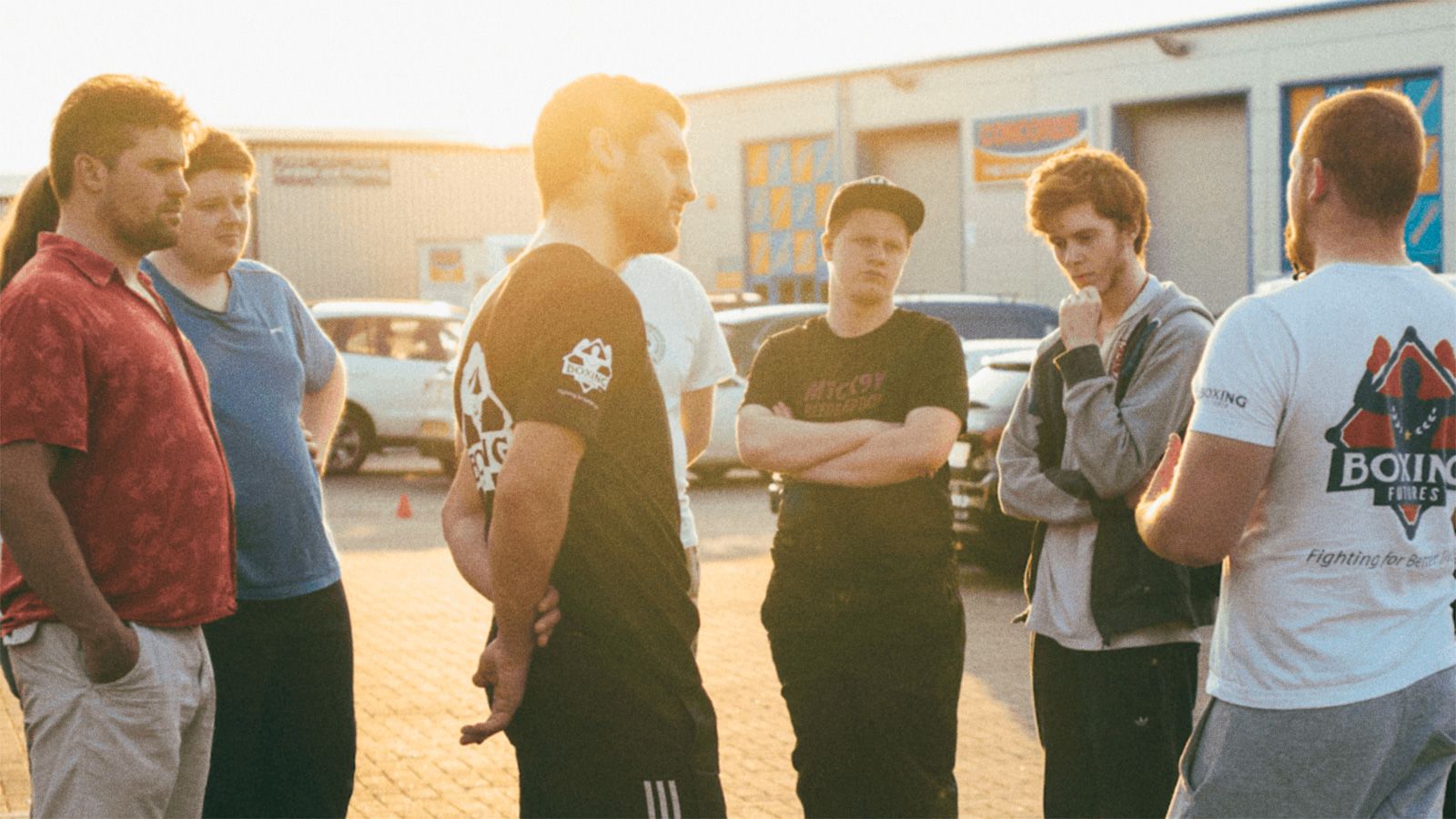


Movember scales up men’s mental health projects
Movember is excited to announce that two men’s mental health projects in the UK have been granted £704,000 in funding over the next three years to expand their activities to reach more men.
The two projects are Brothers Through Boxing, a Cambridgeshire-based project that connects socially isolated young men through boxing training; and Men’s Pie Club, a scheme in the North East of England which brings together socially isolated men over their shared love of the famous British dish.
Movember’s Director of Social Innovation, Mental Health and Suicide Prevention Ivy Lim-Carter says: “Having strong social networks can be a protective factor against anxiety and depression.
“There is currently a lack of understanding about the best ways to get men and boys to understand the importance of having strong friendships throughout their lives and support them to maintain those relationships.
“Through the Social Innovators Challenge, Movember has supported projects that created male-friendly spaces and offered specially designed activities that would appeal to men and boys to try and engage them.
“We’re delighted to continue working with Boxing Futures and Food Nation to support them in scaling their programmes so that they can reach more men and boys.”
Anthony York, CEO of Boxing Futures, says: “It’s been a wonderful experience working with Movember on the Social Innovators Challenge.
" We’re seeing… members forming new friendships, meeting outside Pie Club and becoming more involved in their communitiess "
“Movember’s approach of taking innovative ideas and funding them through a pilot phase to explore whether they would work, and co-designing the project with young people, was unique. That had never been done in the voluntary sector in the UK before.
“Working with Movember has allowed us to create safe spaces for socially isolated young men which enables them to get support, connect with each other and develop and grow as people. I couldn’t be prouder of what this project has achieved.”
Jamie Sadler, Managing Director of Men’s Pie Club, added: “In the last five years, we’ve learnt a huge amount in terms of the outcomes for the guys who take part in the programme.
“One of the key successes we’re seeing is members forming new friendships, meeting outside Pie Club and becoming more involved in their communities, which is exactly what we want to see happening. The guys feel comfortable and at ease opening up and talking to each other. One of the things we try and get across to them is that it’s good for them and their health to open up and connect with other people and that has a long-term positive impact on their wellbeing.”
Successful social connections
The £4.93million Social Innovators Challenge first launched in 2015 with a call for innovative ideas. The goal was to improve the understanding of what engages men to build strong social connections, particularly those who are at risk of becoming socially isolated.
The Social Innovators Challenge started with 28 projects across the UK, Canada and Australia. Ideas were developed in 2016, with 12 teams moving to test their projects over a two-year period (2017-2019). In March 2020, three projects were selected to further scale their programmes:
- The Changing Room in Scotland, which connects male football fans in their middle years.
- Waves Of Wellness (WoW) Sand n Surf, an Australian project that connects men from all walks of life through surfing.
- Dad HERO, a Canadian-based programme which helps incarcerated dads transition back into their family lives.
Brothers Through Boxing (BTB) and Men’s Pie Club (MPC) are the latest two of the original 12 projects to be approved for scaling over the next three years. Brothers Through Boxing will expand their programme delivery in Peterborough and Cambridge and pilot a programme in East London. MPC will expand to the North East and Yorkshire regions to increase weekly engagement of men in those communities.